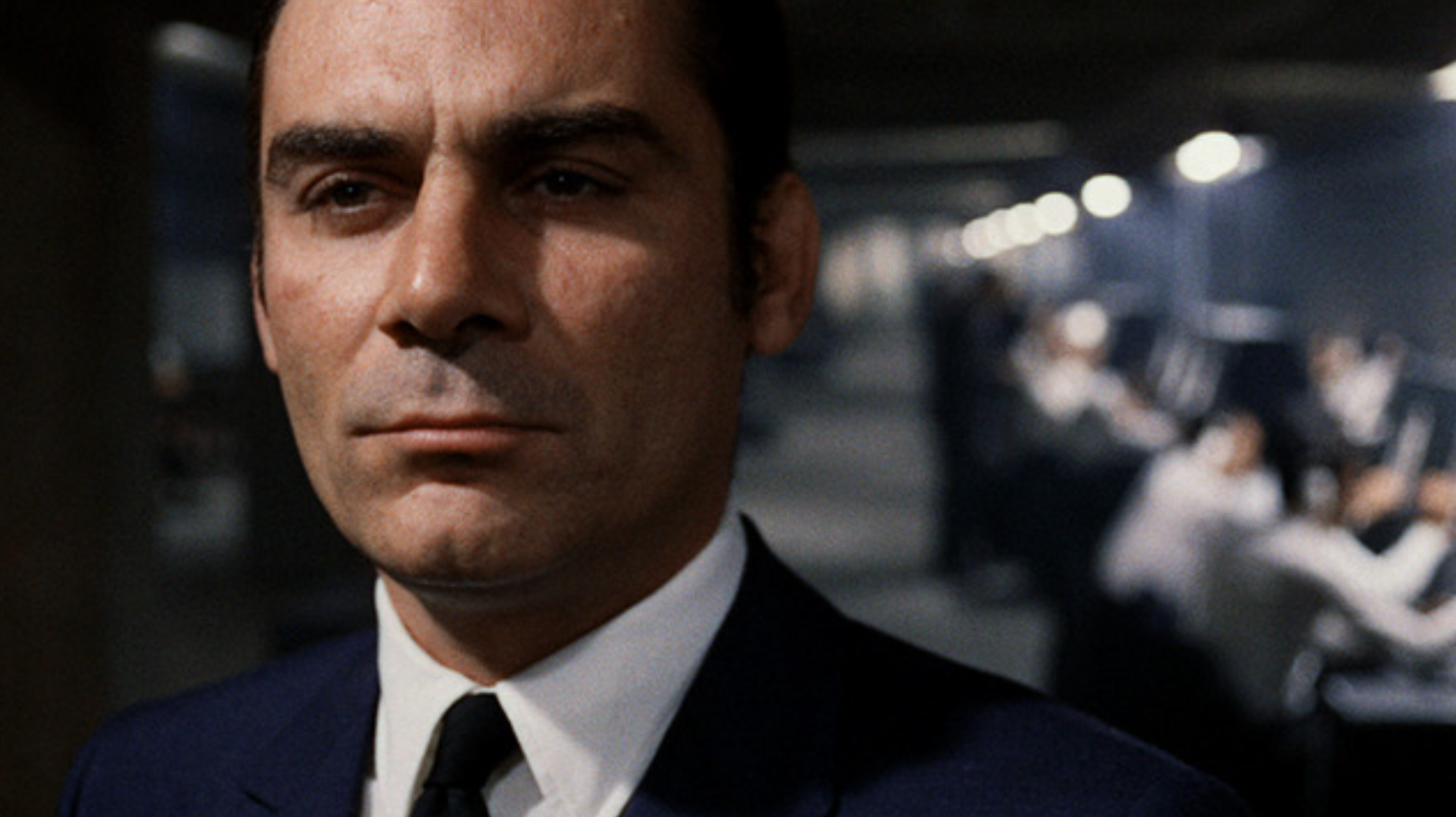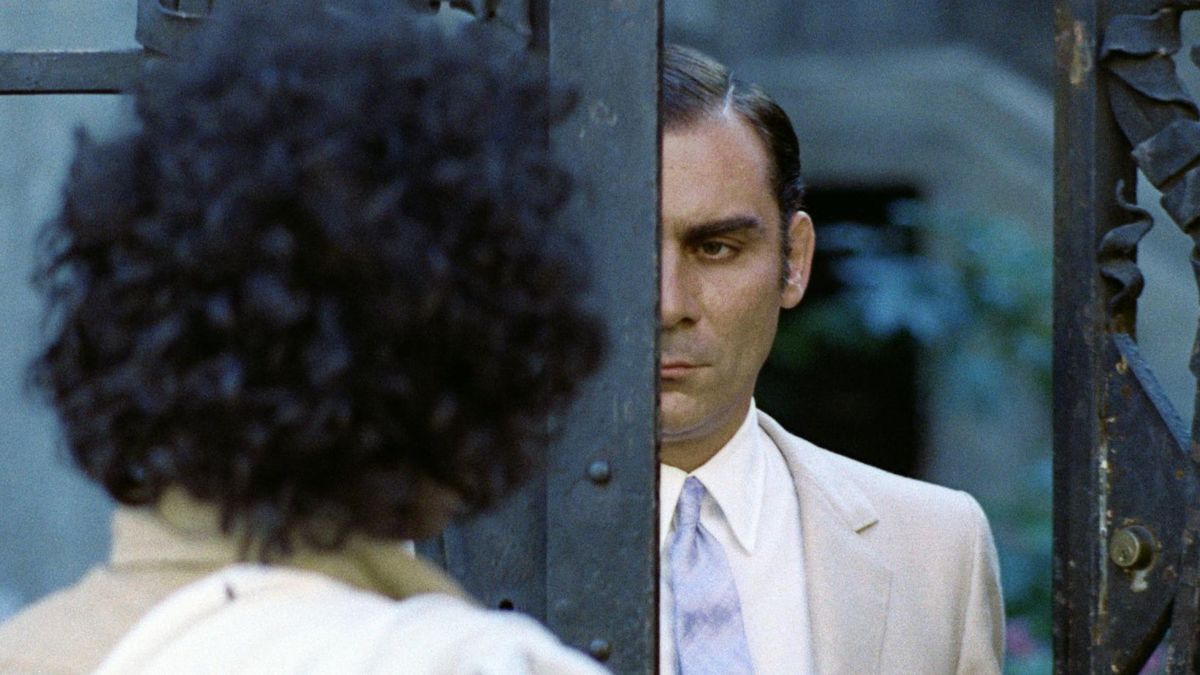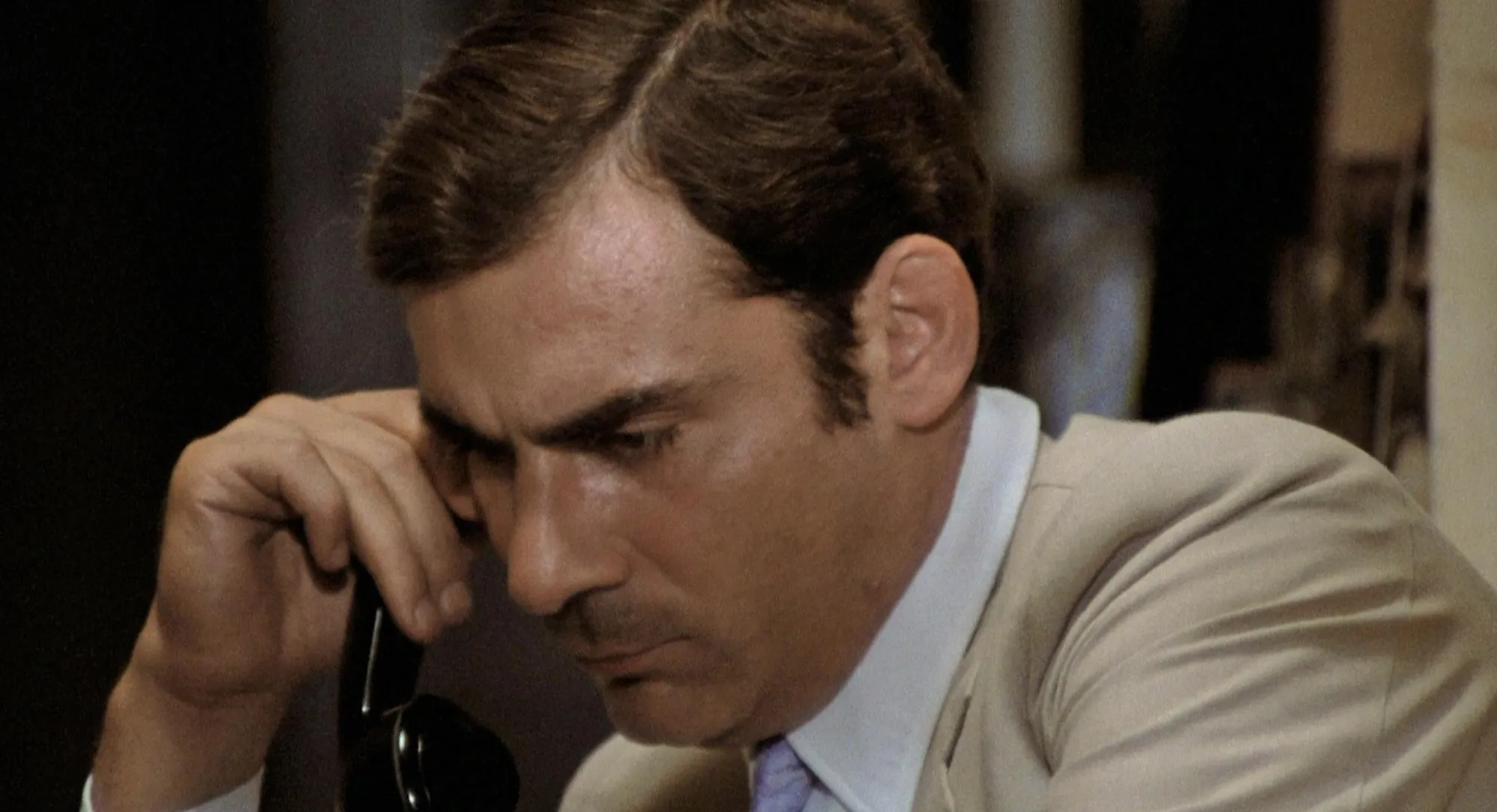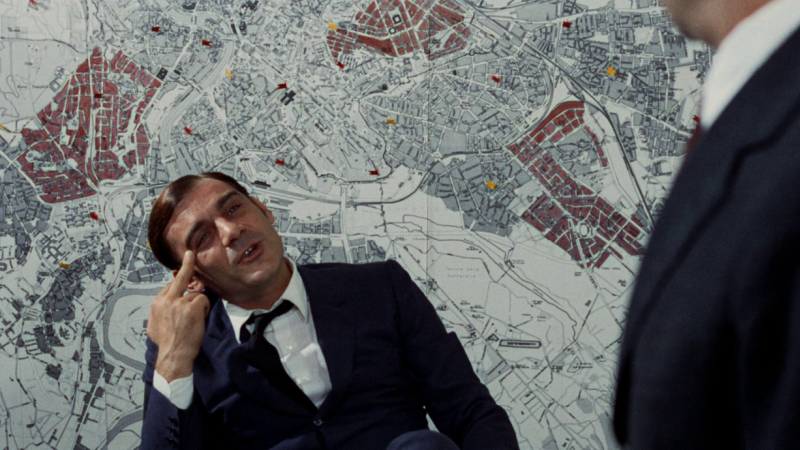🎬 Investigation of a Citizen Above Suspicion (1970): A Masterpiece of Power, Corruption, and Guilt

Investigation of a Citizen Above Suspicion (1970) is a bold, incisive satire directed by Elio Petri, exploring the dark and twisted nature of authority, the corrupting influence of power, and the complexities of guilt. Winning the Academy Award for Best Foreign Language Film, this Italian political thriller stars Gian Maria Volonté in a career-defining role, as the film takes a scathing look at institutional corruption. Blending dark humor with suspense, the film is a gripping examination of how unchecked power can distort morality and justice.
Plot Overview:
The film follows the Chief of the Homicide Division (played by Gian Maria Volonté), a high-ranking police officer who cold-bloodedly murders his mistress, Augusta Terzi (Florinda Bolkan), in her apartment. Far from hiding his crime, the Chief intentionally leaves behind obvious clues pointing to his guilt, almost daring his colleagues to catch him. The Chief believes that his position and authority place him above the law, making him untouchable. His behavior becomes increasingly erratic and brazen as he tests the limits of how far his influence can shield him from the consequences of his actions.
What follows is a tense and often surreal investigation, as the Chief’s colleagues refuse to entertain the idea that one of their own could be guilty. As the investigation deepens, the film becomes a disturbing exploration of how institutional loyalty, fear, and corruption blind justice to the truth.
The film operates on two levels: a suspenseful crime thriller about a man trying to get caught, and a biting political commentary on the moral decay of those in power. As the Chief manipulates the investigation and plays mind games with his subordinates, Investigation of a Citizen Above Suspicion builds towards a harrowing conclusion that leaves the audience questioning the very nature of justice.

Character Development and Themes:
At the heart of the film is the Chief, played masterfully by Gian Maria Volonté, whose performance oscillates between cold arrogance and manic paranoia. Volonté’s portrayal captures the psychological complexities of a man who revels in his own perceived invincibility while grappling with a deep-seated desire for punishment. His character’s hubris is unsettling, as he believes himself to be beyond reproach—simply because of his high-ranking status. His need to assert control over every aspect of the investigation, even as he teeters on the edge of self-destruction, makes for a fascinating character study.
Florinda Bolkan’s Augusta Terzi, though seen primarily in flashbacks, serves as a symbol of the Chief’s desire for control and domination. She represents the only person who dares challenge his authority, and her murder becomes an act of twisted revenge against her defiance. The film’s exploration of their relationship serves as a metaphor for power dynamics, with Augusta’s murder symbolizing the systemic violence used to maintain control over dissent.
The central theme of Investigation of a Citizen Above Suspicion is the corrupting influence of power and how it warps the individual’s sense of morality. The Chief’s brazen murder is not simply an act of violence, but a challenge to the very system that grants him his authority. The film explores the idea that those in positions of power can become so detached from moral consequence that they begin to see themselves as immune to the rules governing society.
The film also delves into the theme of guilt and complicity. While the Chief openly leaves behind evidence of his crime, his colleagues’ refusal to believe in his guilt becomes an indictment of the institutional corruption that protects those in power. The police force’s unwillingness to pursue the truth, blinded by their loyalty to the Chief, exposes the inherent flaws in a system that places authority figures above suspicion.

Political Allegory and Satire:
Investigation of a Citizen Above Suspicion is much more than a crime thriller—it is a sharp critique of the political climate in Italy during the 1970s. Petri uses the film to comment on the abuse of power by the state and the police, exploring how authoritarian regimes manipulate the concept of law and order to maintain control. The Chief’s murder of Augusta and his subsequent manipulation of the investigation serve as a metaphor for how those in power often act with impunity, knowing that the system will protect them.
The film’s satirical tone is heightened by its absurdity. The Chief’s antics, his overconfidence, and the surreal nature of the investigation highlight the farcical nature of a system where the powerful can literally get away with murder. Petri’s dark humor, combined with Ennio Morricone’s haunting and off-kilter score, creates an atmosphere that is both unsettling and biting in its social critique.
Cinematography and Visual Style:
Visually, Investigation of a Citizen Above Suspicion is a stunning example of Italian cinema in the 1970s. Luigi Kuveiller’s cinematography captures the sterile, bureaucratic world of the police force, juxtaposed with the claustrophobic and intimate moments of the Chief’s unraveling psyche. The film uses bold, dramatic close-ups to heighten tension, often focusing on the Chief’s expressions as he grapples with his own guilt.

The use of flashbacks is particularly effective, offering glimpses into the toxic relationship between the Chief and Augusta, while also reinforcing the theme of control. The repetition of certain scenes and moments adds a surreal layer to the narrative, emphasizing the cyclical and inescapable nature of power dynamics and corruption.
Criticism:
While Investigation of a Citizen Above Suspicion is widely regarded as a masterpiece, its heavy reliance on symbolism and political allegory may not resonate with all audiences. Some viewers may find the film’s pace slow and its narrative too focused on its thematic ambitions, rather than delivering a conventional crime thriller.
Additionally, the Chief’s erratic behavior and arrogance may feel over-the-top at times, bordering on caricature. However, this is likely intentional, as Petri uses exaggeration to highlight the absurdity of the system he is critiquing.
Final Thoughts:

Investigation of a Citizen Above Suspicion is a brilliant and thought-provoking exploration of power, corruption, and guilt. Elio Petri’s masterful direction, combined with Gian Maria Volonté’s chilling performance, makes this film a timeless critique of institutional authority and the moral compromises that come with unchecked power. Its themes of complicity, corruption, and the abuse of power remain relevant today, making the film as impactful now as it was when it first premiered.
For fans of political cinema, psychological thrillers, or films that challenge the status quo, Investigation of a Citizen Above Suspicion is a must-see. Its blend of satire, suspense, and social commentary make it one of the most significant films to come out of Italian cinema in the 1970s, and it remains a powerful statement on the dangers of authoritarianism.
Movie Information:
- Title: Investigation of a Citizen Above Suspicion (Indagine su un cittadino al di sopra di ogni sospetto)
- Director: Elio Petri
- Starring: Gian Maria Volonté, Florinda Bolkan, Gianni Santuccio
- Genre: Crime, Thriller, Political Satire
- Release Date: November 13, 1970
- Running Time: 115 minutes
- Rating: Not Rated
- Plot Summary: A high-ranking police officer murders his mistress and intentionally leaves behind clues to his guilt, testing the limits of his authority. As his colleagues refuse to believe that he could be guilty, the film becomes a biting critique of institutional corruption, power, and morality.
SUGGESTED VIDEO FOR YOU:
[Movie Review] The Killer’s Game (2024): A Deadly Contract, A Race Against Time
[Movie Review] Survival War In The 333-Story Vertical Prison || The Platform 2











